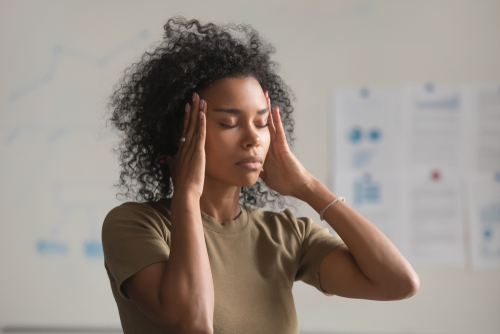Anxiety is the body’s natural response to stress. It is an unavoidable feeling that every human will undoubtedly experience throughout one’s life. Some people will experience bouts of anxiety accompanied by severe and/ or prolonged symptoms, while others may experience mild, and/ or fleeting symptoms of anxiety. Every person is different and each will respond distinctly to the variety of methods available that can help to soothe anxiety. Consider the following tips to help calm anxiety:
- Get ahead of it: understanding one’s triggers surrounding anxiety and learning to act preemptively can help to reduce or even alleviate an anxiety spell
- Exercise: regular exercise can help you remain physically fit as well as provide a natural release of endorphins, elevating your mood
- Enjoy nature: lay under the stars, go hiking, go for a swim in a river, lake or ocean
- Get creative: learn to express yourself creatively (e.g. take a painting class, try out ceramics, take a cooking class, etc.)
- Try different out relaxation methods: meditation, yoga, reading, listening to music, journaling
- Get social: try to step away from your anxiety by hanging with friends (e.g. host a spa night, watch a movie, have a pot-luck dinner, etc.)
Most importantly, know when to get help: there is no shame in seeking outside support. There are exceptional mental health professionals that create customized treatment plans for individuals struggling with anxiety.
Formal Anxiety Treatment
An individual that experiences debilitating anxiety may be suffering from a deeper mental health ailment, one of which is known as Generalized Anxiety Disorder (GAD). There are many therapeutic treatment options for individuals diagnosed with GAD. The most common types of therapeutic modalities for GAD include cognitive behavioral therapy (CBT), dialectical behavior therapy (DBT), and expressive arts therapy. CBT is a type of therapy that combines behavioral therapy with talk therapy. DBT is a form of CBT that places greater emphasis on the psychosocial aspect of healing. DBT primarily uses mindfulness-based principles to help an individual learn tools and techniques to work towards achieving his or her therapeutic goals through understanding one’s emotions and subsequent behaviors related to his or her emotions. Another common treatment option for people with GAD is medication. There are several different types of SSRIs (Selective Serotonin Reuptake Inhibitors) that are often prescribed for individuals with Generalized Anxiety Disorder. Some of the common SSRIs that are often prescribed for GAD include Lexapro (escitalopram oxalate), Zoloft (sertraline), and Prozac (fluoxetine). The goal of treatment is to return the person to the driver’s seat of his or her life, instead of allowing anxiety to run his or her life. An individual’s treatment plan will utilize psychotherapy, and for some medication, to help an individual adjust and shift his or her relationship to one’s GAD symptoms. One of the primary goals of any kind of therapy in regards to Generalized Anxiety Disorder is to help an individual come to understand the nature of his or her own anxiety itself. This will, hopefully, result in the individual being less fearful of the anxiety itself, and help him or her to make choices independent of the presence of anxiety.
Disclaimer:
The information above is provided for the use of informational purposes only. The above content is not to be substituted for professional advice, diagnosis, or treatment, as in no way is it intended as an attempt to practice medicine, give specific medical advice, including, without limitation, advice concerning the topic of mental health. As such, please do not use any material provided above as a means to disregard professional advice or delay seeking treatment.


